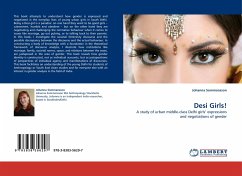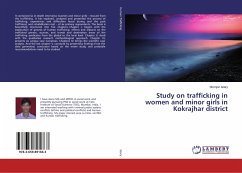This book attempts to understand how gender is expressed and negotiated in the everyday lives of young urban girls in South Delhi. Being a Desi girl is a paradox: on one hand they want to be good girls - subservient, humble and obedient - but on the other hand they are negotiating and challenging the normative behaviour when it comes to issues like marriage, go out pubing, or to talking back to their parents. In this book, I investigate the societal femininity discourse and the possible discrepancy between the discourse and the actual behaviour. In constructing a body of knowledge with a foundation in the theoretical framework of discourse analysis, I illustrate how institutions like marriage, family, societal norms, space, and relations between the sexes, are juxtaposed in the area of gender. This book reveals how gender identity is constructed, not as individual accounts, but as juxtapositions of perspectives of individual agency and manifestations of discourses. This book facilitates an understanding of the young Delhi for students of Anthropology or South East Asian studies and for everyone else with an interest in gender analysis in the field of India.
Bitte wählen Sie Ihr Anliegen aus.
Rechnungen
Retourenschein anfordern
Bestellstatus
Storno








